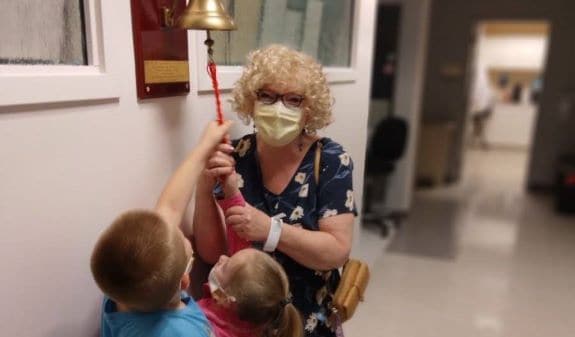It’s well established that hormones play a key role in breast cancer risk. So, it’s not surprising that factors related to fertility and pregnancy have been actively studied to better understand their relationship with breast cancer. These include, age at menopause, age at first period, childbearing (number of children and age at first childbirth) and use of menopausal hormone therapy (postmenopausal hormones).
The potential link between birth control pills and breast cancer has also been well studied. And, studies have looked at a possible link between the use of fertility drugs and breast cancer. At this time, results from these studies point to some solid conclusions, with some results still up in the air. These findings and other issues related to birth control pills and fertility drugs are discussed below.
Birth control pills
Are there different types of birth control pills?
Birth control pills often get lumped together into a single group, but there are actually many different oral contraceptive options. Most contain a mix of the hormones estrogen and progestin. The exact amounts and types of these hormones vary depending on the specific pill. Some types of birth control pills and other contraceptives contain only progestin. These include the injectable contraceptive Depo Provera and what’s often called the “mini-pill.”
Birth control pills contain the same types of hormones included in menopausal hormone therapy (used to manage menopausal symptoms). However, there are important differences. These medications contain different amounts of hormones and they are used during different stages of life for different purposes.
Do birth control pills raise the risk of breast cancer?
Women who take birth control pills have a slightly increased risk of breast cancer (about 20 to 30 percent) compared to women not on the pill.1-2 This extra risk, though, is quite small because the risk of breast cancer for most young women is low.1-2 And, the extra risk goes away fairly quickly after women stop taking the pill.1-2 Four years after stopping, breast cancer risk linked to the pill drops by half. Nine years after, it nearly goes away completely.1-2
Are there other risks with birth control pills?
In addition to an increased risk of breast cancer, birth control pills can also raise the risk of blood clots and heart attack, especially in women who smoke and those age 35 or older.3-4
Do birth control pills affect the risk of other cancers?
The most obvious benefit of birth control pills is that they prevent pregnancy, but they have also been shown to lower the risk of two types of cancer – ovarian cancer and colon cancer.
For colon cancer, using the pill for eight years or more has been shown to lower the risk of the disease by around 40 percent.5 For ovarian cancer – a cancer with few risk factors that are under a woman’s control – long-term use of the pill can lower risk by as much as 50 percent.5
What’s the bottom line on birth control pills and breast cancer?
Birth control pills have both risks and benefits. The risks are lower for younger women than for older women. Even though the risk of breast cancer and heart attack are increased while women are taking the pill, most women who take the pill are young. Therefore, these women are at very low risk overall of developing those conditions, so the absolute increase in risk is small.
For most young women, the benefits of birth control pills will outweigh the risks, especially since the breast cancer risk drops when a woman stops taking them. However, before you begin taking birth control pills (or if you are currently taking them and haven’t done so already), it’s best to discuss their benefits and risks with your health care provider.
Find a summary of research studies on birth control pills and breast cancer.
What about the “mini pill” and Depo Provera?
Newer types of contraceptives – like the “mini pill” and Depo Provera – are not as well studied as standard birth control pills. Overall, the evidence to date shows no solid links to an increased risk of breast cancer.6-7 Some findings suggest that long-term current use of Depo Provera may raise risk.6-7 but better data on Depo Provera and other less common forms of birth control pills are needed before the true risks and benefits are known.
Fertility Drugs
Similar to birth control pills, fertility drugs impact reproduction and hormone levels. Fertility drugs have also been studied as a possible risk factor for breast cancer.
Do fertility drugs raise the risk of breast cancer?
Fertility drugs are used by women to help improve their chances of getting pregnant. The drugs work by stimulating the ovaries, which increases the levels of certain hormones in the body. Because higher hormone levels are linked to breast cancer risk, fertility drugs have been studied as a potential breast cancer risk factor.
To date, though, no solid links have been found between fertility drugs and breast cancer, including clomiphene or gonadatropin.8-9 Some studies have found an increased risk, some a decreased risk, and some no risk at all.
Longer term studies and studies of newer fertility treatments should provide better information and help clarify the issue in the coming years.
Do fertility drugs have other potential cancer risks?
There are no established links between fertility drugs and other cancers. Some studies have suggested an increase in the risk of endometrial (uterine) cancer as well as ovarian cancer with use of fertility drugs.9 However, other studies have not shown increased risks and thus, results have been mixed. These potential links remain an active area of research.
What’s the bottom line on fertility drugs and breast cancer?
For some women who are having trouble getting pregnant, fertility drugs can help. While the use of fertility drugs does not appear to increase breast cancer risk at this time, studies with longer-term data are needed to confirm these findings. If you have any concerns about breast cancer risk due to fertility treatment, talk to your health care provider.
Summary
The use of birth control pills appears to increase the risk of breast cancer, but they are usually taken during a time in a woman’s life when she is young and her risk is low. So for most young women, the contraceptive benefits of birth control pills outweigh this risk. And at this time, the use of fertility drugs does not appear to increase breast cancer risk. However, longer-term data are needed to confirm these findings.
Before taking birth controls pills, other contraceptives or fertility drugs, talk to your health care provider about the possible risks and benefits for you. This may be especially important for young breast cancer survivors, as well as young women at high risk of developing the disease.10 There are many options for all of these treatments. Together, you can make choices on contraception or fertility that are best for you.
Dr. Ann Partridge, MD, MPH, Clinical Director of the Breast Oncology Center at Dana-Farber Cancer Institute and Associate Professor of Medicine at Harvard Medical School concludes that, “Understanding the complex relationships between hormones and cancer risks in women is one of the most important scientific and medical care issues for women’s health. The good news is that more and more data suggest that life-enhancing uses of hormones are available for women. But sorting out whether risks are worth it for any given woman remains challenging. In general, however, for average risk young women, the benefits of fertility and contraception hormones appear to far outweigh the risks.”
References
- Collaborative Group on Hormonal Factors in Breast Cancer. Breast cancer and hormonal contraceptives: collaborative reanalysis of individual data on 53,297 women with breast cancer and 100,239 women without breast cancer from 54 epidemiological studies. Lancet. 347:1713-27, 1996.
- Nelson HD, Zakher B, Cantor A, et al. Risk factors for breast cancer for women aged 40 to 49 years: a systematic review and meta-analysis. Ann Intern Med. 156:635-48, 2012.
- Lidegaard Ø, Løkkegaard E, Jensen A, Skovlund CW, Keiding N. Thrombotic stroke and myocardial infarction with hormonal contraception. N Engl J Med. 366(24):2257-66, 2012.
- Shufelt CL, Bairey Merz CN. Contraceptive hormone use and cardiovascular disease. J Am Coll Cardiol. 53(3):221-31, 2009.
- Hannaford PC, Selvaraj S, Elliott AM, Angus V, Iversen L, Lee AJ. Cancer risk among users of oral contraceptives: cohort data from the Royal College of General Practitioner’s oral contraception study. BMJ. 335(7621):651, 2007.
- Skegg DC, Noonan EA, Paul C, et al. Depot medroxyprogesterone acetate and breast cancer. A pooled analysis of the World Health Organization and New Zealand studies. JAMA. 273(10):799-804, 1995.
- Li CI, Beaber EF, Chen Tang MT, Porter PL, Daling JR, Malone KE. Effect of depo-medroxyprogesterone acetate on breast cancer risk among women 20 to 44 years of age. Cancer Res. 72(8):2028-35, 2012.
- Zreik TG, Mazloom A, Chen Y, et al. Fertility drugs and the risk of breast cancer: a meta-analysis and review. Breast Cancer Res Treat. 124:13-26, 2010.
- Brinton LA. Breast cancer risk after use of fertility drugs: stimulating new controversy. J Natl Cancer Inst. 104:962-4, 2012.
- Figueiredo JC, Haile RW, Bernstein L, et al. Oral contraceptives and postmenopausal hormones and risk of contralateral breast cancer among BRCA1 and BRCA2 mutation carriers and noncarriers: the WECARE Study. Breast Cancer Res Treat. 120(1):175-83, 2010.



